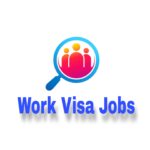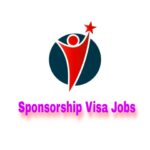Free Visa Jobs
Sponsorship Jobs Canada: Unlock Exciting Career Paths
Job Description
Canada has many sponsorship jobs, offering chances for people to find work here. The country’s work sponsorship programs aim to bring in skilled workers from everywhere. With the right skills and experience, you can start an exciting career in Canada.
It’s important to know about the different sponsorship programs in Canada. The Canadian government has programs like the Temporary Foreign Worker Program and the International Mobility Program. These help people get a work permit and visa to work in Canada, making it easier to find sponsorship jobs.
Key Takeaways
- Canada offers a range of sponsorship jobs in Canada for skilled workers
- Canadian work sponsorship programs provide opportunities for career advancement
- Understanding the different types of sponsorship programs is essential
- Obtaining a work permit and visa is necessary to work in Canada
- Sponsorship jobs in Canada can lead to permanent residency
- Canadian employment opportunities are available in various industries
Understanding Canadian Work Sponsorship Programs
Canada has different work sponsorship programs to help hire foreign workers. These programs aim to fill labor gaps and boost the economy. The Temporary Foreign Worker Program and International Mobility Program are key to this effort.
The Labour Market Impact Assessment is a big part of this process. It checks how hiring foreign workers will affect the Canadian job market. Employers must show that hiring a foreign worker won’t hurt Canadian workers’ wages or jobs.
- Eligibility criteria for foreign workers and employers
- Application process and required documentation
- Benefits and drawbacks of each program
It’s important for employers and foreign workers to know about the Temporary Foreign Worker Program, International Mobility Program, and Labour Market Impact Assessment. Learning about these programs helps make the sponsorship process smoother. It also increases the chances of a successful application.
Top Industries Offering Sponsorship Jobs in Canada
The Canadian job market is full of opportunities for sponsorship jobs. Industries like healthcare, technology, and finance are at the forefront. They are growing fast and need skilled workers for many roles.
In Canada, there’s a big need for skilled workers. Sponsorship jobs are available in many fields. Here are some of the top industries:
- Healthcare: With more older people, healthcare jobs are in demand. Sponsorship jobs are open for nurses, doctors, and others.
- Technology: Canada’s tech industry is booming. Sponsorship jobs are available for software developers, data scientists, and IT pros.
- Finance: The finance sector is also growing. Sponsorship jobs are available for financial analysts, accountants, and more.
These top industries have many sponsorship jobs in Canada. The skills needed vary by job and industry. But, language skills and relevant work experience are key for most sponsorship jobs.
The Canadian job market has many sponsorship job opportunities. Industries like healthcare, technology, and finance are leading the way. Knowing what’s needed in these fields can help you find sponsorship jobs in Canada.
Essential Requirements for Sponsored Employment
To get sponsored for a job in Canada, you need to meet certain requirements. These include educational qualifications. You must have a degree or diploma from a recognized school. The exact qualifications needed depend on the job and industry.
Work experience requirements are also key. Most jobs need a certain number of years of experience in a related field. This experience should show you have the skills and knowledge needed for the job.
Language proficiency standards are another important factor. Canada’s official languages are English and French. You usually need to be proficient in one of these languages. You can prove your language skills with tests like IELTS or TOEFL for English, or TEF or DELF for French.
Meeting these requirements can really help your chances of getting sponsored in Canada. It’s important to check the specific requirements for each job. Make sure you have all the necessary qualifications and experience. This way, you can boost your chances of success in the Canadian job market.
How to Find Sponsorship Jobs in Canada
Looking for sponsorship jobs in Canada? It’s key to use good job search strategies. Job boards are a great place to start, offering many sponsorship jobs. Make sure your resume and cover letter fit the Canadian job market to stand out.
Networking is also vital. Go to job fairs and industry events. Connect with field professionals to find out about job openings. Recruitment agencies that focus on sponsorship jobs in Canada can also help a lot.
Don’t forget about social media. Companies often post job ads on these platforms. Stay active and show your interest in the company and role you’re applying for. This can boost your chances of getting hired.
- Utilize job boards and recruitment agencies
- Network with professionals in your field
- Tailor your resume and cover letter to the Canadian job market
- Stay active on social media to find job openings
By following these tips, you can find sponsorship jobs in Canada and reach your career goals.
Application Process and Documentation
Applying for sponsorship jobs in Canada has several steps. You need to submit a complete application with all needed documents. The application process is detailed, so it’s key to know what’s required and follow the rules closely. A document checklist helps make sure you have everything.
To work in Canada, you must get the required permits and visas. This includes a work permit, which is for a specific job and employer. The time and cost to get these can vary, so plan ahead.
Here’s a basic guide to the application process:
- Submit an application with all required documents, including a document checklist
- Obtain the required permits and visas, such as a work permit
- Pay the processing fees and wait for the application to be processed
By following the application steps and including all needed documents, you can boost your chances of success. Remember, the process might differ for each job and employer. So, it’s important to research and understand the specific requirements.
Benefits of Canadian Employer Sponsorship
Canadian employer sponsorship has many benefits for those wanting to work in Canada. It lets workers get a work permit, which is key for gaining experience. It also opens up more job opportunities, including ones not open to non-sponsored workers.
Another big plus is the chance to get permanent residency. Sponsored workers can apply for this after a while, leading to citizenship and a secure future. Employers also gain by attracting the best talent globally.
Some main benefits of sponsorship jobs in Canada are:
- Access to a wider range of job opportunities
- Ability to obtain a work permit
- Potential for permanent residency
- Opportunity to gain valuable work experience in a Canadian context
To enjoy these benefits, finding a sponsoring employer is crucial. Look for companies that have sponsored workers before. Network and show off your skills to potential employers. A sponsorship job in Canada is a big step towards a successful career and getting work permits.
Common Challenges and How to Overcome Them
When looking for sponsorship jobs in Canada, people often face many hurdles. One big problem is language barriers. This can make it hard to talk well at work. To beat this, getting better at English or French is key. This will boost your skills and confidence.
Another big challenge is credential recognition. Qualifications from other countries might not be accepted here. To solve this, getting your credentials checked by a trusted place like the Canadian Information Centre for International Credentials is important. This step can prove your skills are valid, helping you find sponsorship jobs.
Adapting to a new culture is also crucial. Cultural adaptation means learning about Canadian ways and values. Being open and adaptable helps you fit in and make good connections at work. Ways to help include going to cultural events, joining groups for expats, and getting advice from mentors or career advisors.
To do well in Canada’s job market, tackling these challenges head-on is key. Recognizing and solving these problems can help you get sponsorship jobs and grow your career.
Success Stories: From Sponsored Worker to Permanent Resident
Many people have reached their career dreams in Canada through sponsorship jobs. They then got permanent residency. These stories show how sponsorship jobs can lead to long-term career success and stability in Canada.
Some have found sponsorship jobs in fields like tech and healthcare. They used their skills and experience to get permanent residency. Now, they have built successful careers in Canada. Their stories prove the benefits of sponsorship jobs and the chance for career growth and permanent residency.
Success comes from hard work, determination, and perseverance. Many also used the support and resources in Canada, like language training. These stories show how sponsorship jobs have positively changed lives and opened doors to permanent residency.
For those thinking about sponsorship jobs in Canada, these stories are inspiring. They offer insights into the opportunities and challenges. With the right mindset, skills, and support, sponsored workers can achieve their career goals and become a valued part of Canadian society.
Conclusion: Your Path to Canadian Employment
Canadian employment through sponsorship jobs in Canada is a great way to grow your career. It opens doors to many professional opportunities in this lively country. By using your skills and qualifications, you can find your place in Canada.
If you want to explore new horizons or start a new chapter, sponsorship jobs in Canada are a great choice. They help you learn and adapt, making it easier to find a job you’ll love. This way, you can build a successful and satisfying career in Canada.
Start your journey to the Canadian dream by looking into the many Canadian employment options. With the right help and a smart plan, you can create a future full of chances to grow and contribute to Canada’s success.
FAQ
What is the Temporary Foreign Worker Program (TFWP)?
The Temporary Foreign Worker Program (TFWP) lets employers hire foreign workers. This is when there aren’t enough Canadian citizens or permanent residents for the job.
What is the International Mobility Program (IMP)?
The International Mobility Program (IMP) lets employers hire foreign workers without needing an LMIA. It supports Canada’s economy and cultural interests, and meets international agreements.
What is a Labour Market Impact Assessment (LMIA)?
A Labour Market Impact Assessment (LMIA) is needed for employers to hire foreign workers in Canada. It checks if hiring a foreign worker will help or not harm the Canadian job market.
What are the top industries offering sponsorship jobs in Canada?
Top industries for sponsorship jobs in Canada are healthcare, technology, finance, engineering, and skilled trades. These fields often need foreign talent due to a shortage of workers.
What are the essential requirements for sponsored employment in Canada?
To get sponsored employment in Canada, you need to meet certain requirements. These include having the right education, work experience, and speaking English and/or French.
How can I find sponsorship jobs in Canada?
To find sponsorship jobs in Canada, use job boards and network with professionals. Tailor your resume and cover letter for the Canadian job market. Also, use social media to connect with employers.
What are the benefits of Canadian employer sponsorship?
Canadian employer sponsorship offers many benefits. It lets you work in Canada, find more job opportunities, and even get permanent residency. It also makes getting a work permit and visa easier.
What are some common challenges faced by individuals seeking sponsorship jobs in Canada?
Challenges for those seeking sponsorship jobs in Canada include language barriers, getting credentials recognized, and adapting to a new culture. Overcoming these with language training, credential evaluation, and cultural orientation can help.



